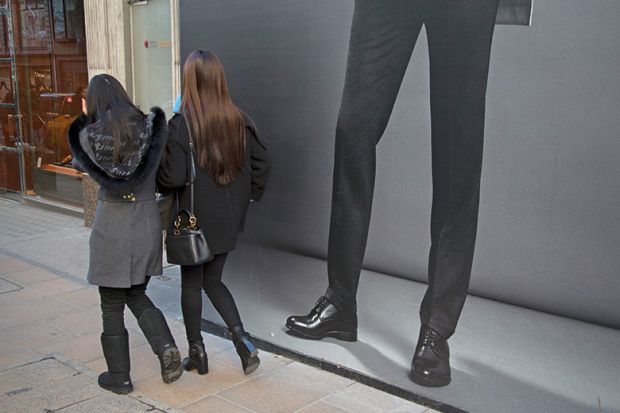Are the Nobel prizes sexist? If they are, then perhaps some are more sexist than others. The prize for literature has been awarded to 14 women and 95 men. The peace prize has gone to 16 women and 81 men. Of the others, female laureates number 12 in medicine/physiology, four in chemistry, two in physics, and just one in economics.
Taken as a whole, just 5 per cent of the 911 winners have been female, and in our opinion pages this week, Janet Shibley Hyde, director of the Center for Research on Gender and Women at the University of Wisconsin-Madison, considers why this might be.
The arguments Hyde explores include stereotypes about gender and “brilliance”, the particular prominence of men in mathematical fields, the stifled aspirations of young girls, and the undoubted bias that persists, not least in academic career structures themselves.
Whether the blame for these issues can be laid at the door of the Nobel prize committee is another matter. But it’s probably true to say that the Nobel prize has a far greater influence on science and the way it is conducted than similar honours in other walks of life.
Academic success is measured in terms of prestige as much as anything else, and there is a breed of Nobel-obsessed scientist who will do whatever it takes to maximise their chances, jumping on any promising new area and throwing the full resources of a large lab at getting to the Nobel-worthy discovery first.
This may be a good thing if it advances science in the most efficient, productive way possible. But does it? And is this most often a male trait, with women more likely to get trampled than do the trampling?
There are also technical questions about the way the Nobel prize is awarded, which are at least tangentially related to gender.
For example, a Nobel prize can be awarded to a maximum of three people. Fair enough, you might say; a prize that’s shared between 50 people could never carry the prestige that’s inherent to a Nobel’s power. But in an age of ever-increasing complexity in the sciences, when groundbreaking work is often carried out by large and multiple teams, is the right balance being struck in deciding who gets the garlands? Is unconscious bias playing any part?
Another rule of the game is that a Nobel cannot be awarded posthumously. There is no reason why this would discriminate against one sex or the other, but as Hyde points out it does mean that someone as worthy as Rosalind Franklin was automatically dismissed by the Nobel committee when it was considering who should win the prize for discovering the structure of DNA.
As an aside, it’s not immediately obvious why being hit by a bus on the way home from the lab should prevent someone from being honoured for driving on the boundaries of human knowledge – or why one’s dependants should not benefit from the sizeable cash prize.
If the dead don’t move you, then perhaps the laureates of the future will. Every year, Clarivate Analytics issues Nobel predictions based on citation volumes. It has a good hit rate – 43 previous picks have become laureates over the past 15 years. Of this year’s 22 predictions, just one is a woman (Yuan Chang, of the University of Pittsburgh School of Medicine).
The question of how much this matters is one that we put to previous winners in the Times Higher Education Nobel Laureates Survey.
The results, released this week, are clear: of the 50 laureates we spoke to, two-thirds said that the Nobel prize was devalued to a greater or lesser extent by the lack of female winners.
As Brian Schmidt, who won the Nobel Prize in Physics and is vice-chancellor of Australian National University, puts it: “If the trend continues, it will devalue them a lot. Nobel prizes are a lagging indicator, and to some extent reflect the lack of diversity in the past.
“That being said, the fraction of female winners has not improved as much as I would expect given the pool of exceptional discoveries being made by women over the past 25 years. I would be deeply disappointed if the fraction of female recipients does not rapidly rise over the coming decade.”
So what will next week’s announcements bring – a stick of Alfred Nobel’s dynamite, or more of the same?
Register to continue
Why register?
- Registration is free and only takes a moment
- Once registered, you can read 3 articles a month
- Sign up for our newsletter
Subscribe
Or subscribe for unlimited access to:
- Unlimited access to news, views, insights & reviews
- Digital editions
- Digital access to THE’s university and college rankings analysis
Already registered or a current subscriber? Login




